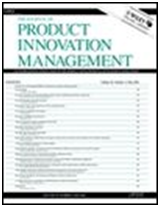Building the BoP Producer Ecosystem: The Evolving Engagement of Fabindia with Indian Handloom Artisans

Recent research on the Base of the Pyramid ('BoP') has called on firms to initiate market-driven interventions directed at the BoP population with the objective of identifying and pursuing mutually profitable means of attaining meaningful poverty alleviation outcomes. In response, firms as well as scholars have engaged at length with the creation of new products and services for the BoP consumer but paid far less attention to the BoP producer - a member of the BoP population who creates value by producing goods and services for sale in non-local markets. Additionally, extant studies have largely focused on snapshot views of BoP interventions by firms, thereby limiting our understanding of the emergence of meaningful poverty-alleviating outcomes over time from these interventions. This paper seeks to redirect attention towards the dynamic of the long-term engagement between the firm and the BoP producer. Using rich case data from Fabindia - an Indian handloom retailer - this paper examines how the engagement between Fabindia and communities of handloom artisans in India has persisted over a period of five decades. We found that, even as it encountered changes in the external environment and pursued newer organizational goals, Fabindia repeatedly renewed its engagement with handloom artisans and facilitated progression in poverty alleviation outcomes. Building on the insights from the case study, this paper presents a process model that highlights the role of innovative management practices in sustaining engagements between firms and BoP producers over time. Additionally, this paper proposes the concept of the 'bridging enterprise'- a business enterprise that originates at the intersection of specific BoP communities and the corresponding non-local markets - as an interpreter and innovator reconciling the interests of stakeholders across the pyramid.
Building the BoP Producer Ecosystem: The Evolving Engagement of Fabindia with Indian Handloom Artisans

Recent research on the Base of the Pyramid ('BoP') has called on firms to initiate market-driven interventions directed at the BoP population with the objective of identifying and pursuing mutually profitable means of attaining meaningful poverty alleviation outcomes. In response, firms as well as scholars have engaged at length with the creation of new products and services for the BoP consumer but paid far less attention to the BoP producer - a member of the BoP population who creates value by producing goods and services for sale in non-local markets. Additionally, extant studies have largely focused on snapshot views of BoP interventions by firms, thereby limiting our understanding of the emergence of meaningful poverty-alleviating outcomes over time from these interventions. This paper seeks to redirect attention towards the dynamic of the long-term engagement between the firm and the BoP producer. Using rich case data from Fabindia - an Indian handloom retailer - this paper examines how the engagement between Fabindia and communities of handloom artisans in India has persisted over a period of five decades. We found that, even as it encountered changes in the external environment and pursued newer organizational goals, Fabindia repeatedly renewed its engagement with handloom artisans and facilitated progression in poverty alleviation outcomes. Building on the insights from the case study, this paper presents a process model that highlights the role of innovative management practices in sustaining engagements between firms and BoP producers over time. Additionally, this paper proposes the concept of the 'bridging enterprise'- a business enterprise that originates at the intersection of specific BoP communities and the corresponding non-local markets - as an interpreter and innovator reconciling the interests of stakeholders across the pyramid.
